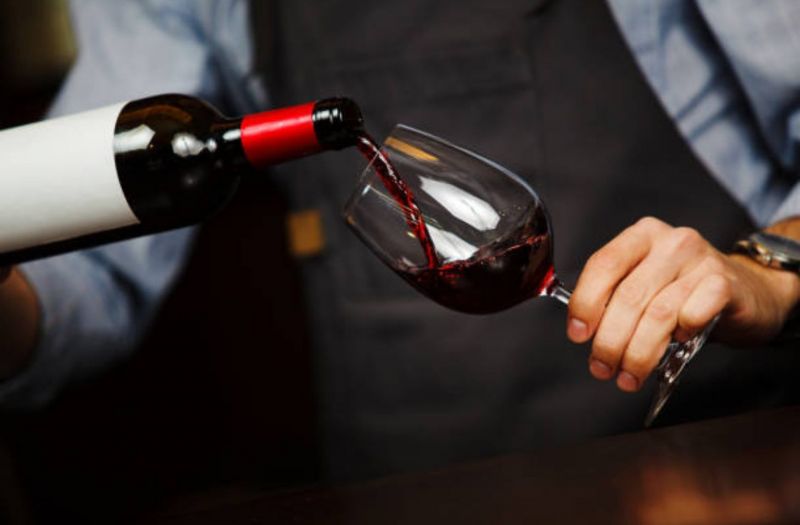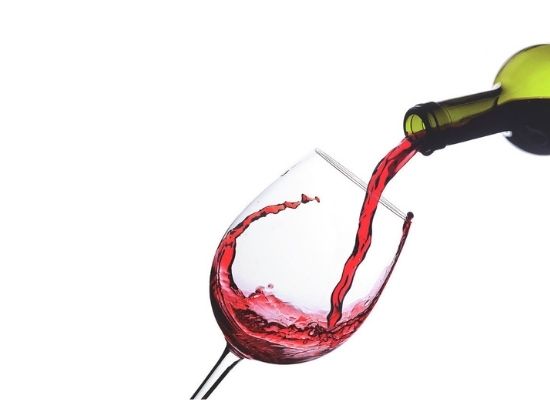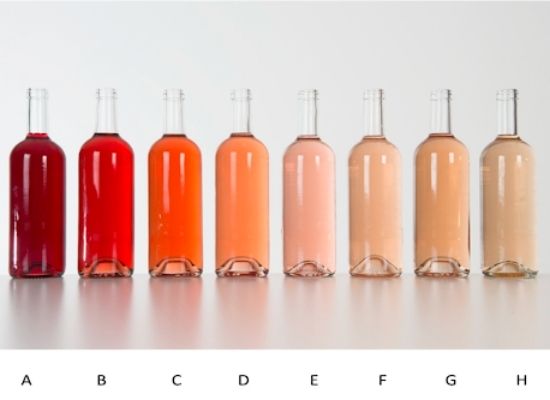Educating Sommeliers Worldwide.
By Beverage Trade Network

A recent academic study found that drinking red wine by the glass (BTG) in a wine bar “increased insightfulness and originality of thoughts, increased sensations of oneness with the environment, spiritual feelings, all-encompassing love, and profound peace.” Wow!
Now there’s a selling point for your restaurant or wine bar BTG program. The authors also wrote: “Red wine increased pleasure and arousal, decreased the awareness of time, slowed the subjective passage of time, increased the attentional focus on the present moment, decreased body awareness, slowed thought speed, turned imagination more vivid, and made the environment become more fascinating.”
[[relatedPurchasesItems-41]]
So BTG can be good for your customers’ psychology, which is indeed a selling point when promoting BTG options on the floor. Enhanced BTG sales are also great for the bottom line in both the short- and long-term. In the short term, margins compared to bottle sales are higher (if your pricing is right). Long term, BTG sales offer opportunities for educating guests, allowing them to sample wines they might not otherwise order; educating guests will lead to better sales over time. BTG sales also give sommeliers opportunities to make targeted suggestions, upselling and serving wines that, if they remained only available by the bottle, would sit unsold for months, if not years. The goal is to have guests buy more glasses than they would otherwise or to sell BTG with prices higher than your restaurant’s current average price.
Lots of anecdotal advice exists about how BTG programs grow revenues, but recent wine business research agrees, concluding that “offering wine by the glass is associated with a . . . 12.2% increase in the bottle margin.” To identify empirically proven strategies of increasing BTG sales, I went beyond unproven wine world wisdom and identified research that empirically showed successful promotion methods.
Before all else, one piece of research firmly valued the role of sommeliers and educated service staff for generating greater profits in the fine dining setting. “The advantage of employing a sommelier in fine dining restaurants,” says the report, is that “more parties order wine . . . the average check is higher . . .and the wine list is updated more frequently.” So, staff wine education goes first! The increases in wine sales result from personal recommendations and guest interaction.

1. Review your wine list and food menu strategy and particularly emphasize pairings. Putting suggested wine pairings directly on the food menu increases BTG sales. In one study, 82 customers were given menus with food and wine by the glass suggestion while 77 others were given a normal menu without a pairing suggestion. Results showed that the food and wine pairing suggestion significantly increases wine sold by the glass. Cornell University Hospitality School research concurs that wines should be placed on the food menu to increase sales.
2. The same Cornell study has one very simple and quick tip: “Do not include a dollar sign ($) in the price format.” Just put a number, with no currency symbol for printed promotions and wine lists.
3. Link your current BTG offerings with the season, including climate. Studies have shown rose wines sell better in summer, especially among Millennials, and chilled white wines go faster in hot climates. Likewise, promote fuller, heartier red wines in winter.
4. The effect of glass size on wine sales has been researched. One study found that serving wine (typically in a 175-ml measure) in 370-ml compared with 300-ml glasses increased sales by 9.4%. “Where significant effects have been observed these consistently showed larger wine glasses increased sales.” This may be because of guest perception that they are actually drinking less wine in large glasses and thus order more. Whatever the exact reason, it appears to work!
5. Encourage your guests who order BTG to be adventurous. This can be an opportunity to promote wines you want to move or to upsell to premium selections with great profitability. The research found consumers use wines available by the glass as a way to try new and more expensive wines or to sample a specific wine before deciding to buy a bottle. The researchers concluded that not having to share with anyone and spending less per transaction helps encourage “adventurous” behavior, and you can emphasize that through personal interaction. Importantly, BTG strategies do not take away from bottle sales. Consumers “do not drink the same wines they usually buy in 750 mL bottles in restaurants, and no cannibalization of these wines takes place.”
6. Make BTG sales educational, sharing your wine knowledge. “A vast majority of the individuals [ordering BTG in restaurants] wanted to learn more about wine and wine tasting,” found one California study.
7. Build variety in your wine by the glass offerings. A British Food Journal paper concluded that “variety-seeking can attract consumers in new wine-consuming places based on a rich assortment.”
8. Demarcate “special” wines served by the glass. This can be done on the wine list, the food menu, tent cards, or QR codes. The Cornell University study found that “the only categorization scheme reliably associated with higher sales” was highlighting wines you want to promote through such classification, with an example being a list’s “reserve” wines.
9. Relatedly, if you use a wine preservation system like Coravin, make it known to your guests! “Successful Coravin programs highlight their Coravin selections on their wine lists either through separate sections, boxes within the BTG lists, or a symbol or other indication next to Coravin selections,” writes Master of Wine Matt Deller’s research paper. But, don’t overdo it, keep it to about three to five selections of these special wines. Favored wine types for dollar sales are Napa Cabernet Sauvignon, Barolo/Barbaresco, California Chardonnay, White Burgundy, and Red Burgundy. The ideal price range appears to be $21 to $45 per glass. In addition, “Coravin appears most successful where there are large populations of sophisticated, highly engaged wine consumers with the means and desire to spend top dollar on wine.” So take your location’s demographics into consideration in your promotion efforts.
10. Show off your colorful wines, whether in person or in restaurant décor. Recent research stated: “colour may enable consumers to anticipate or derive a strong expectation in terms of the odours, aromas, and tastes of wines and therefore the emotions they may experience.” That’s another way of saying pretty colored wines sell to those looking for a pleasant experience. This is especially true for exceptionally hued whites and roses.

Source: MDPI “Rose Wine Market: Anything but Colour?”
An article by Charlie Leary